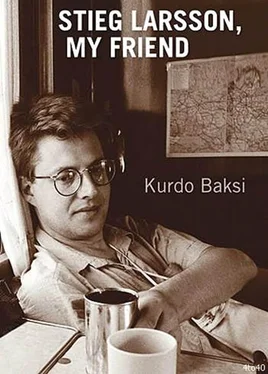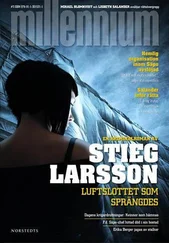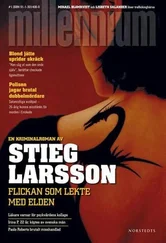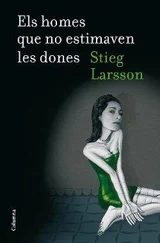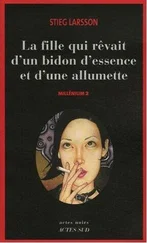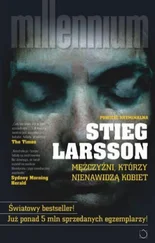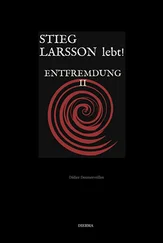I did what struck me as being the right thing to do: called my contact at Swedish Radio and announced that everybody in Sweden, irrespective of skin colour, gender, mother tongue, nationality, homeland, sexual orientation or religion, was welcome to take part in the demonstration, with the rallying call “Sweden will grind to a halt without immigrants.”
Nine months passed between that telephone call and my first real meeting with Stieg. Not surprisingly, it took place over lunch. We arranged to meet at the modest Vasa restaurant in Odenplan, a mere stone’s throw away from my office in Rehnsgatan.
This was before mobile phones had come into their own, enabling people to ring to say they had been delayed. I sat there wondering where he had got to. I did all the usual things – read a newspaper, thought about what else I had to do that day, made an occasional note in my diary. Then I looked at the clock for what must have been the hundredth time. Still no sign of Stieg. I’m usually pretty tolerant when it comes to people turning up late, but now I was starting to get annoyed. It was nearly an hour after the time we had agreed to meet and I found myself formulating a rather stiff dressing-down. I had better things to do than hang about in a third-rate restaurant all day. Besides, I was hungry. Now it was 2.00; if it hadn’t been for my Kurdish upbringing I would no doubt have ordered food long since. To make matters worse, waiters were hovering around my table, as if they expected me to continue sitting there on my own, then leave without ordering anything. An hour and a quarter late, I thought to myself, smacking the table with my rolled-up newspaper. That’s it. Enough is enough.
Just as I was getting up to leave, I noticed out of the corner of my eye a smiling, self-assured-seeming man wearing round glasses, a grey corduroy jacket, a checked shirt and a yellow polka-dot tie. He approached me at a leisurely pace, running his hand through his light brown hair. The first thing that struck me was that anybody observing this man would never have dreamt that he was over an hour late for an appointment.
“I’m sorry,” he said as he sat down. “I’ve been held up by the usual threats. The police tell me I have to be careful. My way of dealing with this is never to turn up on time. Are you hungry? I only want a cup of coffee.”
We shook hands; he lit a cigarette and leaned back in his chair.
“No problem,” I said with a shrug. “Ever since I was a kid things have always gone wrong for me on Wednesdays. Why should today be any different?”
I was not happy with either my attempt to smooth things over or Stieg’s evasive apology, but I did my best to conceal my irritation. I ordered cod and boiled potatoes, not expecting the food to put me in a better mood.
To begin with, we talked about Svartvitt (Black and White), the anti-racist magazine of which I was editor-in-chief. It had been launched as a not-for-profit venture on 20 October, 1987, the remit being to focus on matters of tolerance that other publications seemed to shy away from. Many critics regarded it as provocative. Stieg praised it to the skies. I liked the calm way in which he talked; his tone was warm and convincing, even if there was also something intriguing about it. At first I thought it was another of his precautionary measures, trying to seem a bit mysterious and elusive, at least when meeting face to face.
We moved on to the topics of the moment – the Laser Man, the way in which the populist protest party New Democracy had wormed its way into the parliament after the 1991 general election, the increasingly anti-immigrant image of the Sweden Democrats, and the incredibly naive reaction of the established parties to the threats to democracy these developments posed.
We must have talked for at least two hours. Ashtrays were changed regularly and rapidly filled by Stieg’s cigarette butts. Despite the fact that we had only just met, it felt as if we had known each other for ages. I thought he was one of the most courageous people I had ever encountered. There was no mistaking his commitment – I had rarely come across anybody more passionately convinced of the democratic ideal and the equality of all human beings.
But at the same time there was something modest about him. I immediately detected a paradox in Stieg Larsson’s make-up, and my suspicions would be confirmed as the years passed. He would go out of his way to find people with whom he could work, but all the while he wanted to dictate the way in which the cooperation functioned. He disliked being in the limelight and doing all the talking, especially on television. This led to friction at times, and when I look back over the years we worked together, this contradiction was nearly always the root cause of our disagreements.
Having said that, the paradox was convincingly trumped by the vehemence he displayed in his fight against racism and neo-Nazism. It is simply impossible to describe how passionate, how fervent, not to say how obsessed he was by this mission. I once described him as a mixture of Malcolm X, Martin Luther King, the Dalai Lama and Pippi Longstocking. I concede that this was perhaps a little crude, but it was a sincere attempt to pin down a man with unique and contradictory character traits of a type one rarely encounters.
Another thing that struck me that first time we sat talking – me waiting for my lunch, Stieg with his cups of coffee and his cigarettes – was how animatedly he gesticulated. He also impressed me with the breadth and depth of his knowledge. Naturally, we were well aware that the precarious position in which Sweden found itself in 1992 was nothing compared with the intolerant, anti-immigrant forces at work in Denmark, Holland, Switzerland, Norway, Belgium and Italy. We were indisputably living in a Europe beginning to show its claws in a way that made us worry that a catastrophe might be imminent.
You could say that Sweden was emerging from a Sleeping Beauty-like torpor. For years Swedes had been convinced that they were immune from racism – not the unease with regard to everything new and foreign that is sometimes discussed around dinner tables here and there, but the organized antipathy that arranges demonstrations at election meetings and tries to influence decisions made at local, regional and central government level. During our lunch Stieg compared these forces to a virus spreading through Sweden. He maintained that the battle against them needed fighting every day. If one ignored the situation for long enough, it could become an uncontrolled epidemic.
I have often been accused of being a bad listener. People tell me I talk too much. No doubt they are right. But on that occasion I hardly said a word; I sat there entranced by Stieg’s powerful imagery, neat turns of phrase and black humour. Believe it or not, I let him say all he had to say without interruption. Perhaps I was already fascinated by the contradictory nature of what he was saying. In addition to the mixture of team player and solo performer already mentioned, there was also a remarkable combination of stress and inner calm. He spoke both forcefully and calmly about important principles: about how people should never be insulted, about the struggle for women’s rights, about the importance of humane refugee policies. Matters that most people would agree on, even if many would nod in approval but not do very much about ensuring that things changed for the better. Here was a man who would never give up until the goals had been achieved.
Stieg’s duality was a feature of our friendship from the very start. But there was no question at all about where his heart was. During all the years of our friendship I never doubted for one single second that Stieg Larsson was on the side of the weak and vulnerable. He was always prepared to speak up for anybody and everybody incapable of making a case for themselves. And that was not all: he was willing to pay a high price in order to bring about change.
Читать дальше
